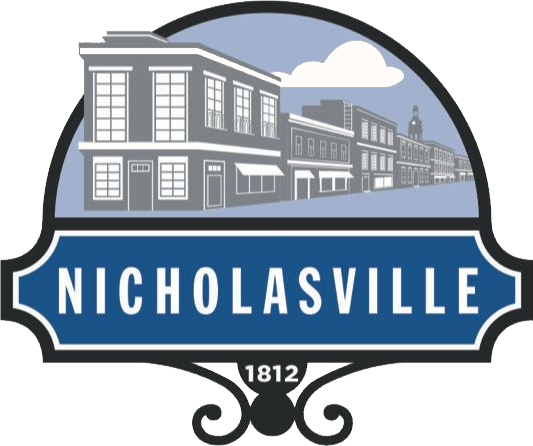Welcome to the
City of Nicholasville!
Where we share the good life.
- Home
- Streets & Stormwater
- Illicit Discharge Detection
Illicit Discharge Detection
and Elimination in the City of Nicholasville, KY
An illicit discharge is any discharge to the storm water system that is not composed entirely of storm water and is not authorized by a National Pollution Discharge Elimination System (NPDES) storm water permit or is not due to firefighting activities [Code of Federal Regulations, 40 CFR 122.26(b)(2)]. Some sources of illicit discharges are sanitary wastewater; effluent from septic tanks; car washes, laundry, and other industrial wastewaters; improper disposal of auto and household toxics, such as used motor oil and pesticides; and spills from roadways or other accidents.
Illicit discharges may enter the storm water system through either direct (e.g., wastewater piping) or indirect connections (e.g., infiltration from cracked sanitary systems, spills collected by drain outlets, and paint or used oil dumped directly into a drain). This results in untreated discharges into streams, rivers, and lakes that contribute high levels of pollutants, including heavy metals, oil and grease, solvents, nutrients, viruses, and bacteria.
Inflows from aging sanitary sewer collection systems are one of the most serious illicit discharge-related problems. Sanitary sewer systems that develop leaks and cracks frequently result in discharges of sanitary wastes and materials from sewer main construction to the receiving waters. The City of Nicholasville is attempting to minimize this situation by inspecting storm sewer discharge locations during dry weather to see if unexpected flows are present.
The improper disposal of materials is another common source of illicit discharges. This can lead to the contamination of the receiving waters in two ways. First, when materials are disposed of directly in a catch basin or other storm water conveyance. Second, materials disposed of on the ground may either drain directly to a storm sewer or be carried by storm water runoff into a storm sewer. Materials that are commonly disposed of improperly include used motor oil, household toxic materials, radiator fluids, and litter, such as disposable cups, cans, and fast-food packages. To minimize the likelihood of these discharges, the precautions outlined for both residential and commercial and construction areas in the Storm Water System section above should be taken.
To report suspected illicit discharges to storm drains, contact the Nicholasville City Engineer.
For more information about storm water issues, please contact the city or visit the Environment Protection Agency’s (EPA) website at www.epa.gov/npdes/stormwater.
| Brian Claar |
| City Engineer |
| 517 N. Main Street, Nicholasville, KY 40356 |
| 859.885-1121 Ext. 256 |
| brian.claar@nicholasville.org |
Nicholasville, KY 40356
City News & Updates
The latest Nicholasville, KY news, articles, and resources can always be found right here on our website.
© 2023 The City of Nicholasville, KY. All Rights Reserved.
Connect With Us

